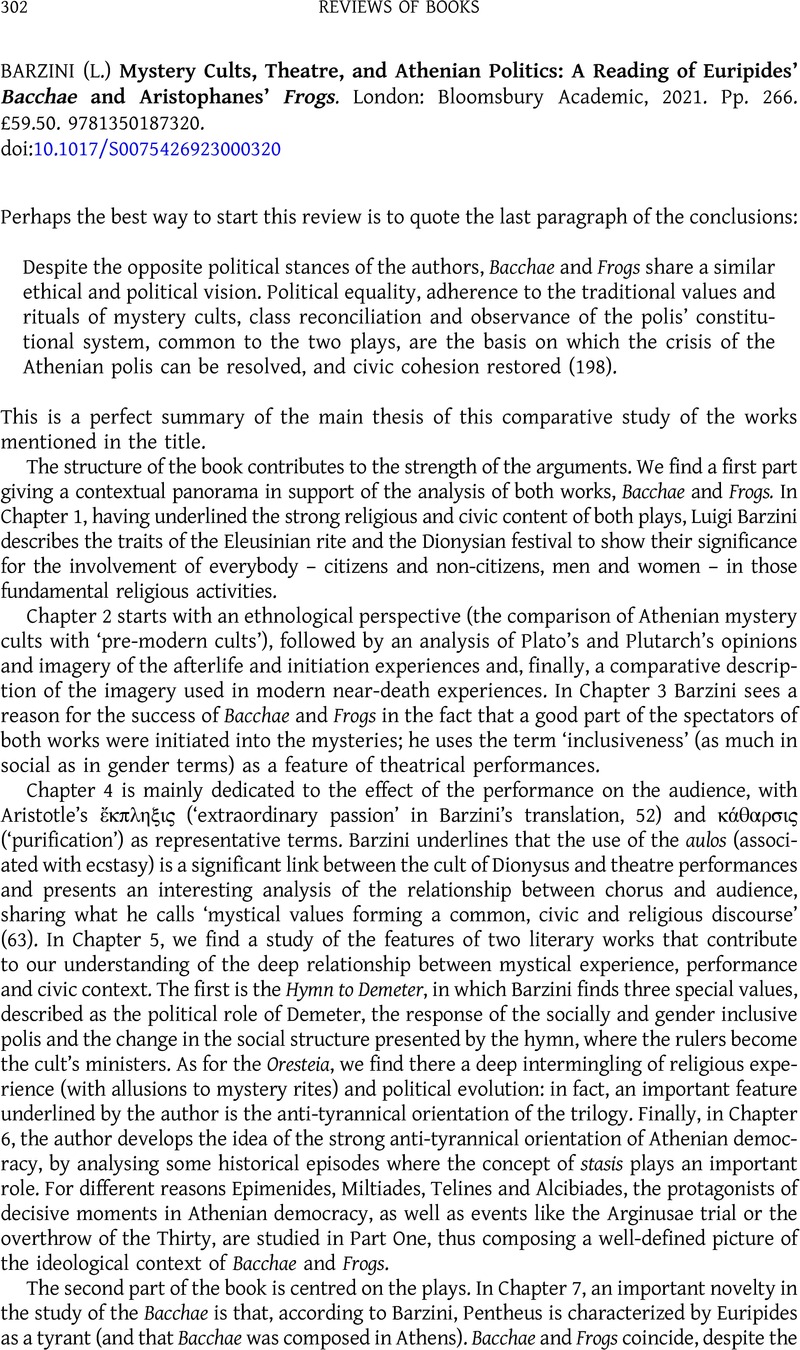No CrossRef data available.
Article contents
(L.) BARZINI Mystery Cults, Theatre, and Athenian Politics: A Reading of Euripides’ Bacchae and Aristophanes’ Frogs. London: Bloomsbury Academic, 2021. Pp. 266. £59.50. 9781350187320.
Review products
(L.) BARZINI Mystery Cults, Theatre, and Athenian Politics: A Reading of Euripides’ Bacchae and Aristophanes’ Frogs. London: Bloomsbury Academic, 2021. Pp. 266. £59.50. 9781350187320.
Part of:
Literature
Published online by Cambridge University Press: 29 May 2023
Abstract
An abstract is not available for this content so a preview has been provided. Please use the Get access link above for information on how to access this content.

Information
- Type
- Reviews of Books
- Information
- Copyright
- © The Author(s), 2023. Published by Cambridge University Press on behalf of the Society for the Promotion of Hellenic Studies

